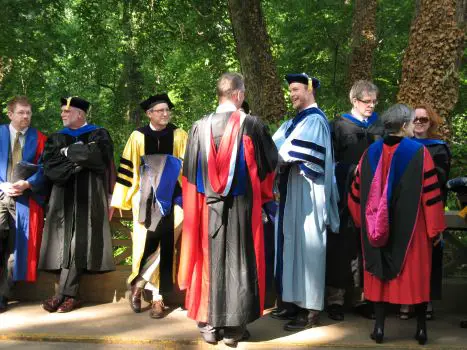
Having done Ph.D. is a matter of pride for anyone. However, the honor doesn’t fall for you in a day, but you’ve to work hard for years before you get into the esteemed group of scholars having ‘Dr.’ added before their name. The way to reach this hallmark isn’t that easy, as in some fields doctorate degree take eight to nine years or more. For example, let’s talk about US where Ph.D. process takes five to seven years on an average, which is six months or one year longer than 15 years ago. Well, it’s not because pupils are too lazy or for that matter, dull to comprehend the things to complete the course on time, but it’s due to many other reasons. Well, wanna know what are the reasons, read the following lines.
Too many courses, classes
While pursuing the doctorate courses, the students have to go through various classes. The reason being, the initial two year of the program is incorporated with lots of classes and it’s not before one year in most of the cases that you enter a lab. This results in plethora of information thrown on the students and they spend most of their time understanding what’s going on. Consequently, majority of students don’t start their research even after one good year. If you are lucky enough to rush through even more classes in the second year, you might be one of the lucky people to end up in the lab soon but the process is slowed because you have to pass the qualifying exams by the end of the second year and so on. Well, if you say system is to blame, read the following thing and think again.
Once you pass the qualifying exams, you get a candidacy for the Ph.D. Well, after two years you are still a candidate and your third year begins with picking up an advisory committee comprising four to five faculty member who you will meet once or twice a year merely for the progress report. By the time you will actually know what to do, the third year is over. Now have your say who to blame?
Students missing guidelines
Some of the noted professors have said the students come to them with some new experiments and interesting results. But that’s not what is anticipated or in other words what they are asked to do. This simply means they start getting things the way their mentors want after four or five years. Hence, the degree doesn’t come their way before seven or eight years are over.
Untrained students
The students aren’t trained properly at the graduate level. This ends up in highly untrained students for the courses. They need more time to adjust to the requirements. However, the funding for the projects is usually defined and comes with shorter deadlines. The delay is inevitable even when the universities have limited funds and issued strict guidelines to complete the courses on time. The initial training might surely help to reduce the time.
Increasing ambitions
As the thesis project are generally based on many layers of technology and are too ambitious in nature at times, the wrap up time for students are bound to increase. The projects that include developing a new device, technology or for that matter, material need lots of experiments and takes too long before reaching any logical conclusion. Then there are revision and all, which, again, increases the time. Hence, more delay in completing the Ph.D. and you surely don’t do it before you reach in your mid thirties.